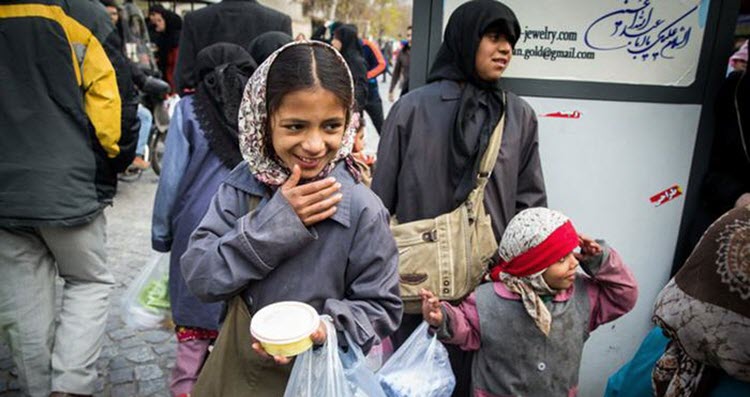
In an article by DW it has been reported that due to the worsening economic situation in Iran, parents are now resorting to selling their children.
Shiva Nazar Ahari told DW that in Tehran almost anything can be bought on the streets – alcohol, drugs, sex and healthy kidneys. Now babies can be added to the list. She said: “It isn’t new that babies are sold on the street. It is on the rise, however. Desperate people aren’t only selling their organs, but also their kids.”
Shiva is a 32-year-old activist living in Iran’s capital. She has been an advocate for women’s rights and street children for more than 10 years and has seen, in the past few months, the issue being taken up more by society in general.
Habibollah Massoudi Farid, vice chair of the state welfare organization, last month said that there has been an alarming rise in the amount of ads on internet sites and in newspapers of parents selling their children.
Fatemeh Daneshwar of the city council said a few months ago that it was not unheard of for homeless women, drug addicts and prostitutes to sell their babies once they have been born. Apparently many children are bought by beggars and drug dealers for as little as 25 dollars. “The babies are often HIV positive, or themselves addicted. Unfortunately, many don’t live very long.”
Fatemeh has urged residents of the city to let authorities know when they see people begging with small children, and to not give them any money. A resident of Tehran who is a young mother herself cannot comprehend this advice. She said: “Every day I see dozens of women begging on the street with poorly clothed children or babies. Are the authorities blind that we have to call them? They are everywhere.”
Tehran which is already home to around 14 million people sees numerous new residents arrive from poorer parts of the country in the search for a job. However hope quickly turns to disappointment because the country’s whole economy is dire, and has been for some years. Even the lifting of international sanctions after the 2015 Iran deal has failed to bring change for the better.
“October oil exports were three times higher than at the same time last year, yet only half of the approximately 1.2 million jobs needed to keep pace with young people entering the workforce every year are created, according to official statistics. Women are especially affected. Some parts of the country see unemployment among women as high as 70 percent. The jobless in Tehran often turn to begging, prostitution or drug dealing.”
Dealing drugs is a business that is booming in Iran, despite the fact that if caught and convicted they could be sentenced to death. Approximately 100 people start taking drugs every day and nearly three quarters become addicted official government figures say. It is said that around 3 million of Iran’s 80 million population is addicted to drugs.
Mahoud Lotfi from the Tehran NGO ‘For Children’s Rights; said: “Not every mother or family who sells her baby or child is drug addicted. (…) Many families suffer from extreme poverty. They are desperate. They sell their children in the hope they will find a better future. The children often end up with beggars. Or they become street workers.”
The state is unable to deal adequately with problem like this, but it is even more hesitant to deal with activists. Shiva has been imprisoned several times for charges such as “spreading propaganda against the system”. She spent nearly the whole of 2010 in prison and was unable to finish her studies.







